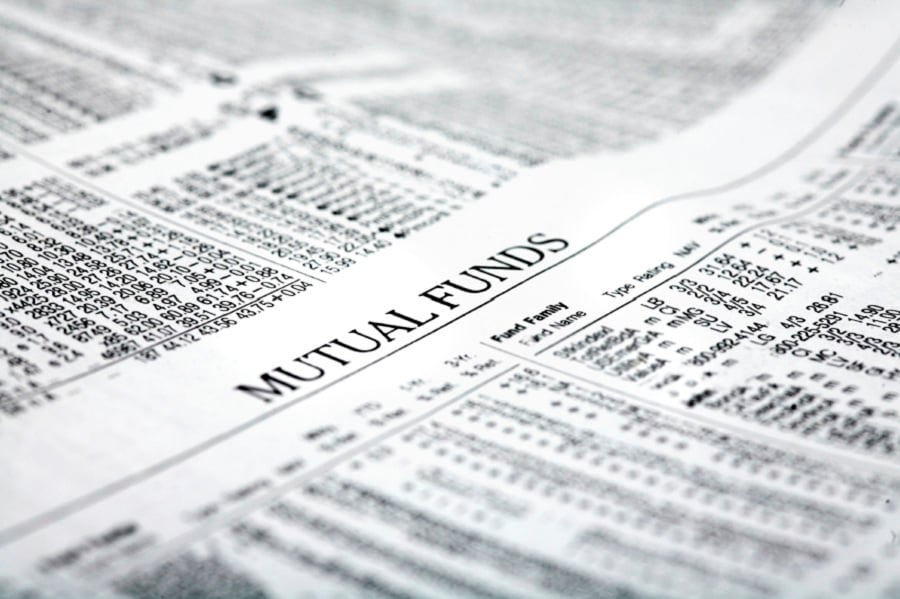Some financial advisers buy investments based on brand or look to recent performance. Others screen for specific criteria: a manager's work history or statistical measures — “downside capture ratios” or “active share,” for instance. Many trust the recommendations of teams dedicated to researching the factors that will drive a manager to consistently beat the market.
There are as many approaches to picking a mutual fund as there are human beings who trade financial assets. What actually works may be more art than science.
But
a new study suggests that there may be a stronger relationship between investors' purchases and redemptions of mutual funds and their performance than was previously understood to be the case. That performance is only going to come under greater scrutiny after a trading day that began with a 1,000-point loss in the Dow Jones Industrial Average.
An examination of the three-year performance of stock-picking funds from 2006 to 2014 showed that funds with high net investor purchases, or inflows, had a lower chance of surviving and outperforming their peers than other funds, according to the author of the report, Daniel Culloton, an associate director of fund manager research for Chicago-based Morningstar Inc.
Large-cap funds with the largest inflows — that is to say, popular funds that target the largest publicly traded companies in the U.S. — averaged just 7.8% in returns each year. That compared with 8.1% for funds with the most outflows and the same figure for the average large-cap fund. The trend was similar for investors targeting smaller companies, including mid-caps and small-caps.
MANAGERS DOWNPLAY IMPACT
Mr. Culloton said fund managers, almost without exception, downplay the impact of fund sales on performance — at least they do when asked about the issue publicly. Privately, they say something else.
“Recently, a seasoned manager and executive of a top-20 mutual fund family conceded to Morningstar analysts that heavy inflows or outflows have a negative impact on investment strategy implementation and performance,” Mr. Culloton wrote.
Despite the results, advisers and analysts said it's difficult to use investor behavior to predict which managers are likely to outperform.
“One could look at the study at face value and try to screen mutual funds based on fund flows, but that would be looking at an effect of investor behavior on the mutual fund rather than the root causes,” said Dieter T. Scherer Jr., an adviser at Adaptive Wealth Solutions, which is based in Chester, Md.
Mr. Scherer said uncertainty around flows creates emotional stress and strain on fund managers who are, after all, human beings. He also said a reasonable explanation of the underperformance of high-inflow funds could just as likely be the fact that funds in general often lose steam after periods of outperformance. And funds tend to attract flows when they outperform. Funds with low inflows or high outflows, on the other hand, may include good funds whose investing style is simply not being rewarded at the moment.
A better-designed study, Mr. Scherer said, would consider the effect of a manager's investment style, alongside flows, on performance.
“Fund flows can affect performance generally. If you receive a large inflow of dollars you have to invest those dollars or else it will temporarily inflate the amount of cash in the net assets, which can cause the fund to be different from its ideal allocation,” said Jason Myhre, director of sales and marketing for Eventide Asset Management, a Boston-based fund manager.
The institutional version of the firm's Gilead Fund (ETILX) ranks in the top ninth percentile, or higher, over the one, three and five year periods that ended Friday. It's delivered 22.2% a year over the last five years, and it's brought in more than half of the $2 billion it currently manages during the last twelve months.
INFLOWS CAN BE HELPFUL
Mr. Myhre said the inflows can be helpful to performance, allowing managers to readjust their allocations without selling existing stocks. It can also allow funds to keep turnover of their securities low overall. Securities held for longer send a lower capital-gains tax bill to fund investors. Mr. Myhre said the main takeaway from Morningstar's study is a reminder of the well-documented risks of chasing strong performance.
But the effects of fund sales on performance itself are sometimes mentioned in lengthy fund prospectuses that itemize a range of potential risks including “terrorism” and “environmental disasters.”
Pimco, in its legal disclosures to investors in the Pimco Total Return Fund (PTTAX), says fund shareholder purchases or redemptions — including due to rising interest rates — “may cause funds to make investment decisions at inopportune times or prices or miss attractive investment opportunities. Such transactions may also increase a fund's transaction costs, accelerate the realization of taxable income if sales of securities resulted in gains, or otherwise cause a fund to perform differently than intended. While such risks may apply to funds of any size, such risks are heightened in funds with fewer assets under management.”
The fund is in the midst of the swiftest series of withdrawals in mutual fund history following the loss of its longtime manager, Bill Gross, who now works at Janus Capital Group Inc. An institutional share-class of the fund is in the top 40% of its peers for the last year, and it's in the top 12% this year, as of Friday, according to Morningstar. Many of those underperforming competitors have taken in money from Pimco's former clients. (Pimco declined to comment.)
Fund managers have also been preparing for the effects of redemptions,
arranging lines of credit with banks to finance unanticipated withdrawals. Others have taken measures including asking the Securities and Exchange Commission for permission to let mutual funds lend to one another in times of stress. The Vanguard Group Inc., the world's largest manager of so-called open-end funds that allow redemptions,
won lending rights for its funds in May 2014. BlackRock Inc., the largest money manager,
is currently asking for similar permission.







